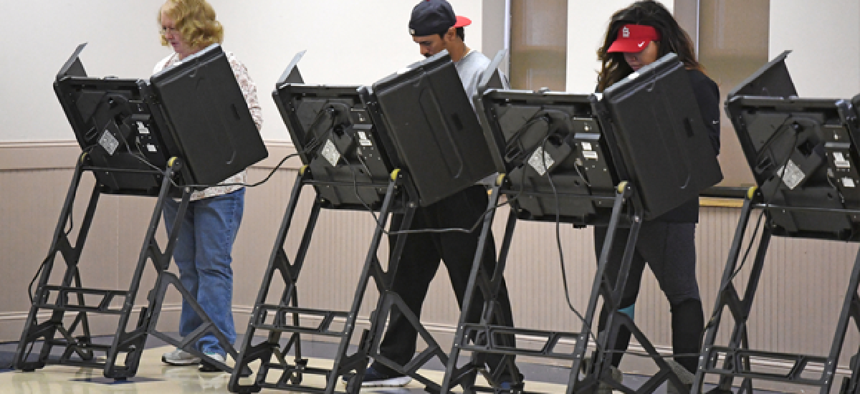Election commission presses for more funds

Additional resources would help the Election Assistance Commission with its expanded election security activities, EAC Chair Christy McCormick told Congress.
The Election Assistance Commission, the independent agency at the center of several key election security debates, is asking Congress for more funds to support voting security.
At a May 15 Senate Rules Committee hearing, EAC Chair Christy McCormick said additional resources would help EAC with its expanded election security activities. "There is no shortage of ambition at EAC when it comes to supporting this work, but there is a stark shortage of funds for such activities," she said.
EAC coordinates with state and local election officials and sets voluntary security standards for voting machines. The tiny agency -- with several dozen employees and a $10 million budget -- is racing to complete the Voluntary Voting System Guidelines 2.0, an updated set of technical standards for voting machines that states and election security experts say are vital to ensuring that the next generation of voting machines are less susceptible to hacking and sabotage.
On that front, both money and personnel are lacking.
The EAC's budget has been halved over the past decade, and the Trump administration has proposed further cuts in its 2020 funding. Meanwhile, early work on developing the principles that will guide new voting machine standards was halted for 10 months between 2018 and 2019 while the agency operated without a quorum of commissioners. McCormick said the EAC doesn't have any full-time employees dedicated to election security work and only four full-time employees working on certification of voting machines, with one set to leave the agency at the end of the week.
Last month, a group of 31 Democratic Senators led by Rules Committee ranking member Amy Klobuchar (D-Minn.) sent a letter to the Senate Appropriations Committee urging it to fund the EAC at Fiscal 2009 levels, when it had nearly fifty employees and a budget of just under $18 million, citing cybersecurity as a top concern.
"Right now, we're taking from other parts of our mission to cover those areas that we are not funded to do," McCormick said. "We'd like to hire more staff and create more programs that would benefit the states and localities in supporting election security as well as everything else that's required under elections."
Even while asking for additional funding, the EAC has been criticized by outsiders for not doing enough to push election security improvements with the resources it does have. McCormick herself has expressed skepticism about the extent of Russian election interference in the 2016 election, saying in 2017 that the narrative was "calculated to create undue concern and worry among the public" and "smacks of partisan politics." Subsequent reporting has indicated that McCormick has since sought to downplay or dismiss the threat in private conversations with election officials and that election security was not considered a priority.
Since becoming EAC chair, McCormick has sounded a different tune and under questioning from Klobuchar said, "we do acknowledge that Russia … has interfered in our elections in many different ways."
This article was first posted to FCW, a sibling site to GCN.
NEXT STORY: Ransomware decryption firms uncovered as frauds





